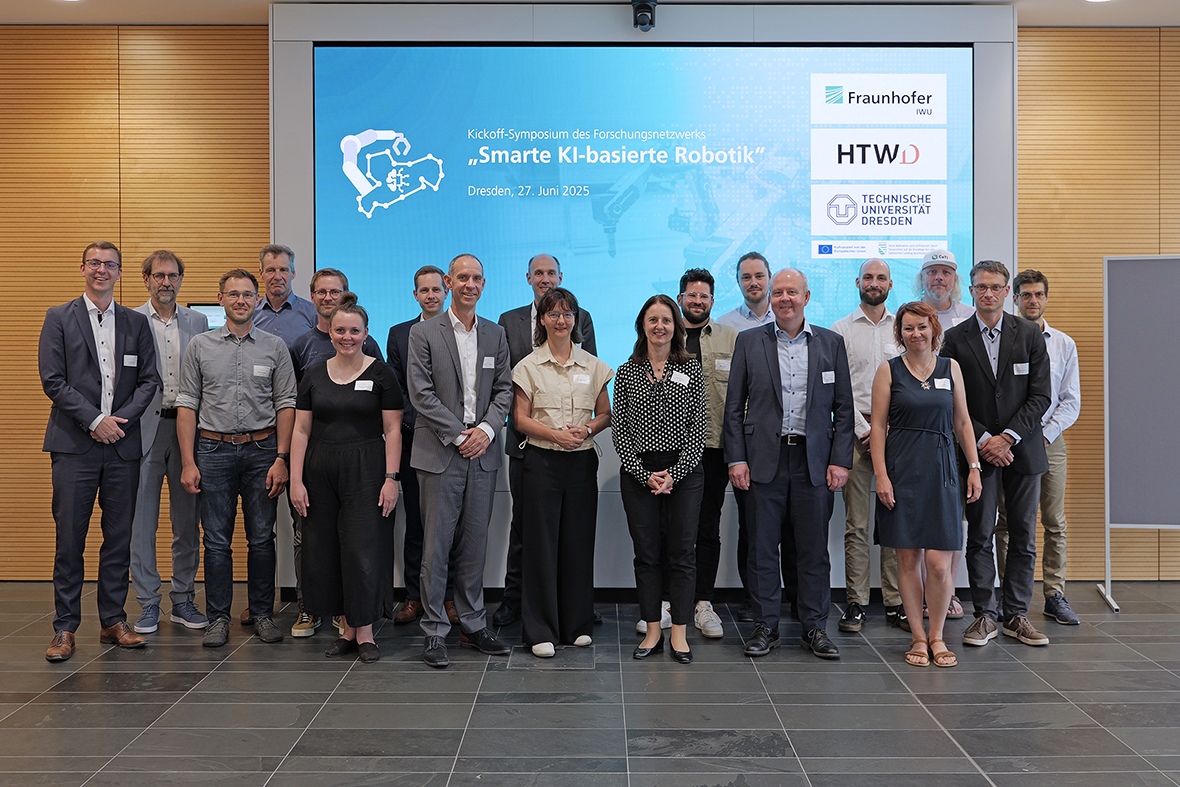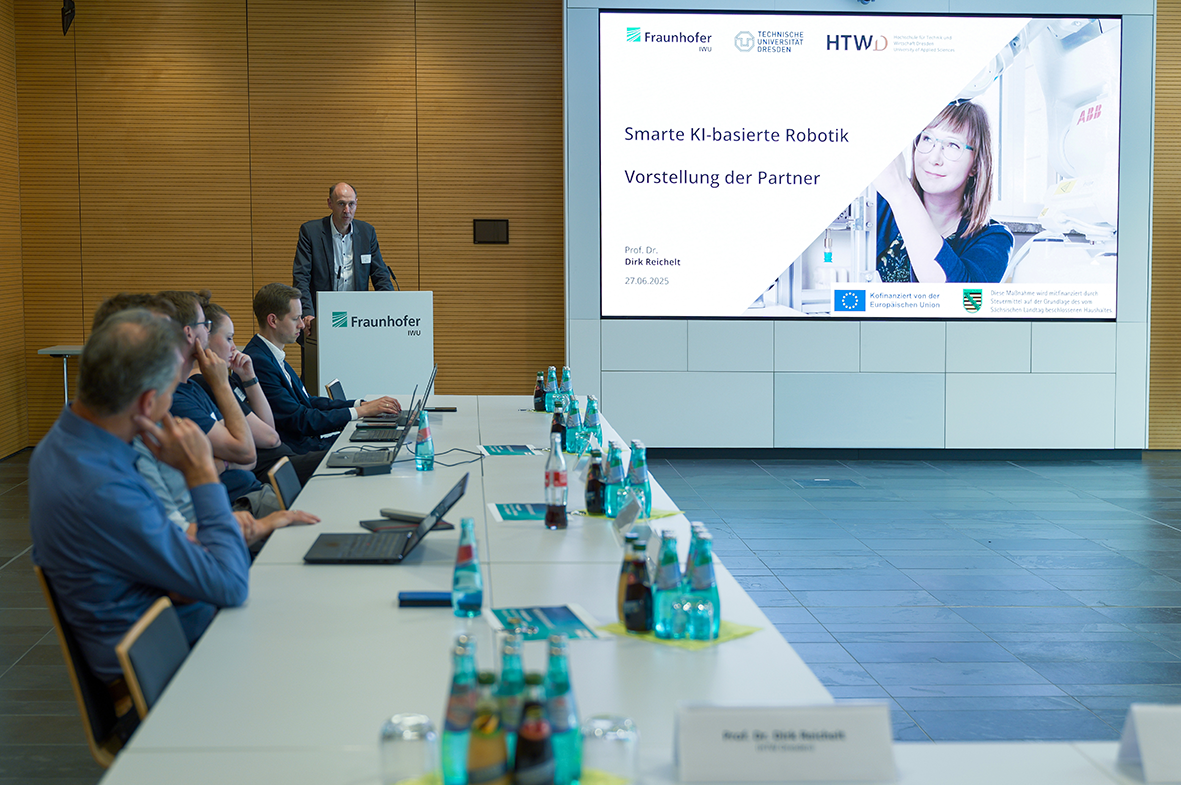
Kick-off for the "Smart AI-based robotics" research network
With the new research network, Saxon universities and research institutions are pooling their research expertise for robotics solutions of the future.
The new research network "Smart AI-based Robotics (SKR)" was launched with a ceremonial start. The aim of the network is to create new innovation spaces and transfer paths by pooling cutting-edge research in Saxony in the field of smart AI-based robotics. The kick-off took place with the participation of the Saxon State Ministry of Science, Culture and Tourism (SMWK) and futureSAX. In her opening speech, State Secretary Prof. Dr. Heike Graßmann emphasised the central importance of the funded research networks for Saxony as a location for science and innovation. She emphasised how important the targeted promotion of interdisciplinary cooperation is in order to strengthen Saxony as a location for research and innovation.
HTW Dresden: A strong partner in research and transfer
The Dresden University of Applied Sciences (HTWD) is one of the three lead funding recipients of the network - alongside the Fraunhofer IWU and the Technical University of Dresden. It is contributing its extensive expertise in the field of intelligent, adaptive and self-organising systems. Existing infrastructures such as the IIoT testbed, the Robotics Competence Centre and the AAL Lab will be specifically incorporated into the project work and further expanded as part of the network
Contributions from the participating professorships at HTW Dresden
- Prof. Dr. Dirk Reichelt (Professorship for Information Management) is responsible for the HTWD sub-project in the network. His team is developing strategies for the effective networking of research, industry and educational stakeholders, with a particular focus on application scenarios for intelligent robotics in industry and the skilled trades.
- Within the network, Prof. Dr. Hans-Joachim Böhme (Professorship of Artificial Intelligence) focuses on the field of service robotics, particularly in relation to care. Based on extensive preliminary work - including in the context of participatory development of robotic assistance systems - he contributes practical expertise to the design of intelligent, human-centred robotic solutions.
- Prof. Dr. Karl Wild (Professorship for Horticulture and Agriculture) works in the field of robotics in agriculture and horticulture. The focus is on the development and testing of autonomous systems for outdoor use - for example for special crops or specialised harvesting and maintenance work. A DFG-funded autonomous tractor on the test field in Pillnitz serves as a real test environment for practical R&D scenarios.




